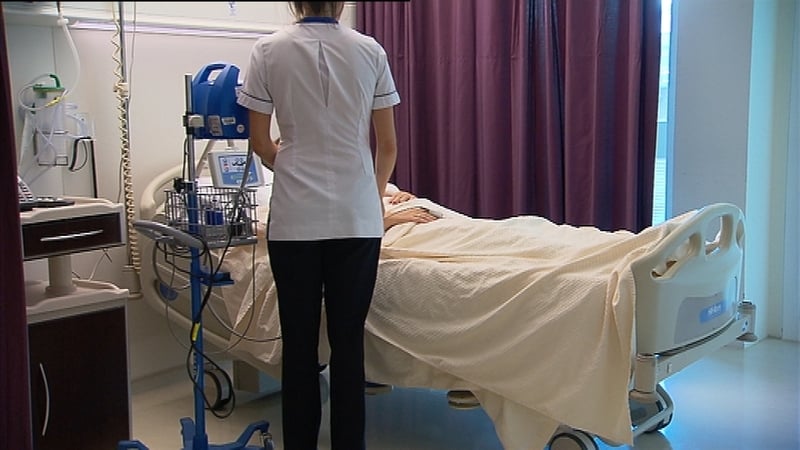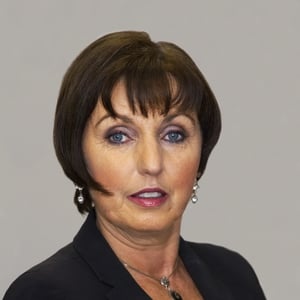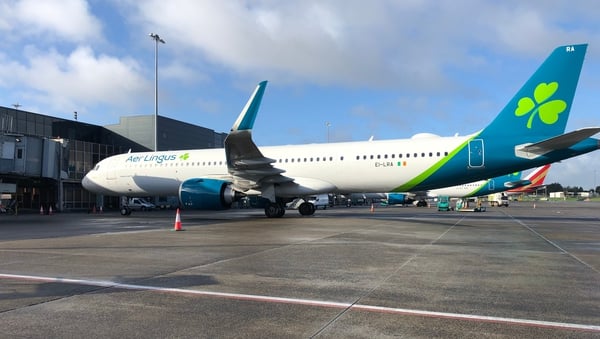Nurses belonging to the Irish Nurses and Midwives Organisation are to strike for 24 hours on 30 January in an escalation of their pay dispute.
If the dispute is not resolved, there will be further 24-hour strikes on 5 and 7 February, and then on the 12, 13 and 14 February.
The INMO argues that there is a serious shortage of nurses across the health service, which is affecting both patients and staff.
The union argues that only a 12% pay increase to bring them into line with other health professionals, such as physiotherapists, will suffice to attract and retain nurses in the profession.
However, last year the Public Service Pay Commission rejected that argument for an across-the-board pay rise, opting instead for a €20m package of allowances targeted at areas experiencing the worst shortages.
These proposals were rejected by 94% of INMO members and 95% went on to vote for strike action.
The Government has repeatedly insisted that it cannot concede the claim, as it would cost around €300m and trigger knock-on claims from other public servants.
However, the INMO insists that its demands can be met within the framework of the current public service pay agreement.
The Psychiatric Nurses Association, which has also voted overwhelmingly for strike action, meets on Thursday to finalise its strike plans.
We need your consent to load this rte-player contentWe use rte-player to manage extra content that can set cookies on your device and collect data about your activity. Please review their details and accept them to load the content.Manage Preferences
The INMO has warned that the industrial action announced today would be a real strike, with a withdrawal of labour and contingency planning will be "focused on the minimum".
General Secretary Phil Ní Sheaghdha said the time for goodwill was over, and that nurses and midwives were fed up with working longer hours for lower pay than other graduate health professionals with similar levels of qualifications.
Ms Ní Sheaghdha noted that one INMO member had carried out orientation for 45 nurses last year, but that 47 had left during the same period.
She warned that without improvements in pay, other English-speaking countries would continue to recruit Irish nurses, particularly after Brexit.
Ms Ní Sheaghdha said the Government would have to get over the "rhetoric" and "spin" that nurses were well-paid.
She said every single statement from the Government so far had concentrated on the penalties that would apply to nurses if they proceeded, and warning them that their issues could not be dealt with without them withdrawing from the public service pay agreement.
Ms Ní Sheaghdha said nurses were prepared to be "inventive" in negotiations.
The Department of Public Expenditure and Reform, which oversees public service pay, declined to comment on the nurses' strikes.
However, sources reiterated that the Public Service Pay Commission had found no generalised recruitment and retention difficulties in the sector, but had instead recommended targeted measures and incentives targeted at certain areas.
They noted that between October 2013 and October 2018, an additional 3,330 nurses and midwives were recruited, over and above retirements and resignations.
They said this showed that the public service can recruit and retain nurses, adding that there were three first preference CAO applications for every undergraduate place.
They also pointed out that the average turnover rate among HSE nurses in 2017 was 5% excluding retirements or 6.8% when retirements were included.
They stated this was lower than the general turnover rate in the Irish labour market of 7.1%, while the UK turnover rate for nurses was 15%, and 15.1% in Australia.
DPER sources described nursing salaries as competitive, with an "effective" basic starting rate of €31,110.






